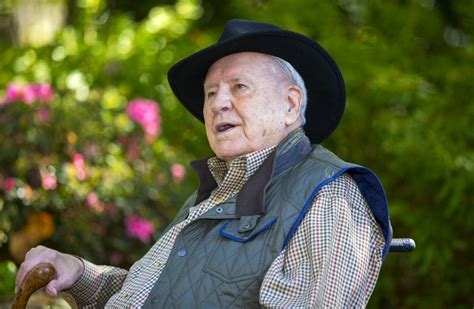A Quote by Charlotte Mary Yonge
If the man be really the weaker vessel, and the rule is necessarily in the wife's hands, how is it then to be? To tell the truth, I believe that the really loving, good wife never finds it out. She keeps the glamor of love and loyalty between herself and her husband, and so infuses herself into him that the weakness never becomes apparent either to her or to him or to most lookers-on.
Related Quotes
Adultery is in most cases a theft in the dark. At such moments almost every woman betrays her husband's innermost secrets; becomes a Delilah who discloses to a stranger, discloses to her lover, the mysteries of her husband's strength or weakness. What seems to me treason is, not that women give themselves, but that a woman is prone, when she does so, to justify herself to herself by uncovering her husband's nakedness, exposing it to the inquisitive and scornful gaze of a stranger.
There was a warmth of fury in his last phrases. He meant she loved him more than he her. Perhaps he could not love her. Perhaps she had not in herself that which he wanted. It was the deepest motive of her soul, this self-mistrust. It was so deep she dared neither realise nor acknowledge. Perhaps she was deficient. Like an infinitely subtle shame, it kept her always back. If it were so, she would do without him. She would never let herself want him. She would merely see.
Every wife ought to answer for her man. If the husband be engaged in a seditious club, or drinks mysterious healths, or be frugal of his candles on a rejoicing night, let her look to him and keep him out of harm's way; or the world will be apt to say, she has a mind to be a widow before her time. She ought, in such cases, to exert the authority of the curtain lecture; and if she finds him of a rebellious disposition, to tame him, as they do birds of prey, by dinning him in the ears all night long.
Yet there were times when he did love her with all the kindness she demanded, and how was she to know what were those times? Alone she raged against his cheerfulness and put herself at the mercy of her own love and longed to be free of it because it made her less than he and dependent on him. But how could she be free of chains she had put upon herself? Her soul was all tempest. The dreams she had once had of her life were dead. She was in prison in the house. And yet who was her jailer except herself?
She rested her head against his and felt, for the first time, what she would often feel with him: a self-affection. He made her like herself. With him, she was at ease; her skin felt as though it was her right size.. It seemed so natural, to talk to him about odd things. She had never done that before. The trust, so sudden and yet so complete, and the intimacy, frightened her.. But now she could think only of all the things she yet wanted to tell him, wanted to do with him.
I think Eleanor Roosevelt always had a most incredible comfort writing letters. I mean, she was in the habit of writing letters. And that's where she allowed her fantasies to flourish. That's where she allowed her emotions to really evolve. And that's where she allowed herself to express herself really fully, and sometimes whimsically, very often romantically. And it really starts with her letters to her father, who is lifelong her primary love.
I'll never forget the first time Davram took me by the scruff of my neck and showed me he was the stronger of us. It was magnificent! If a woman is stronger than her husband, she comes to despise him. She has the choice of either tyrannizing him or else making herself less in order not to make him less. If the husband is strong enough, though, she can be as strong as she is, as strong as she can grow to be.
She realized how many of her beliefs were either unrealistic or belonged to her deceased parents and her ex-husband. She also realized that her expectations for herself and others were sometimes too rigid. She was trying to live up to what everyone else said was best for her, which made her depressed and hard to be around at times. Once she changed her beliefs about herself and others, she began to smile more and enjoy life.
So she had to satisfy herself with the idea of love - loving the loving of things whose existence she didn't care at all about. Love itself became the object of her love. She loved herself in love, she loved loving love, as love loves loving, and was able, in that way, to reconcile herself with a world that fell so short of what she would have hoped for. It was not the world that was the great and saving lie, but her willingness to make it beautiful and fair, to live a once-removed life, in a world once-removed from the one in which everyone else seemed to exist.
The love of a wife to her husband may begin from the supply of her necessities, but afterwards she may also love his person: so the soul first loves Christ for salvation, but when it is brought to him, and finds what sweetness there is in him, then the soul loves him for himself, and esteems his person, as well as rejoices in his benefits.
For women, Neo-Confucianism placed extra emphasis on chastity, obedience, and diligence. A good wife should have no desire other than to serve her husband, no ambition other than to produce a son, and no interest beyond subjugating herself to her husband's family - meaning, among other things, she must never remarry if widowed.







































